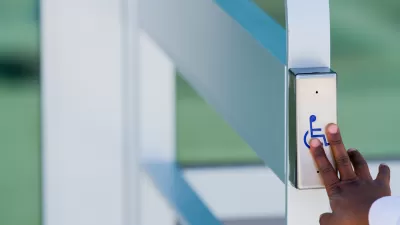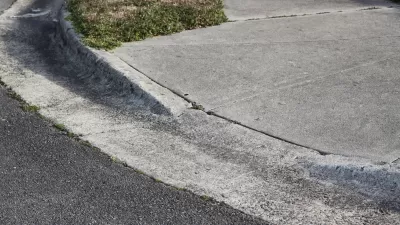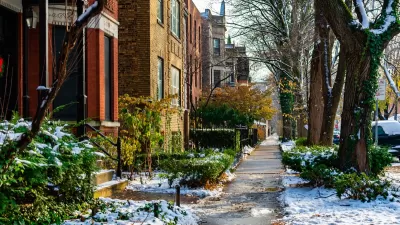Designed to thwart predatory lawsuits, the bill could make it easier for businesses to ignore barriers to access, disability rights advocates say.

The House has passed an amendment to the Americans With Disabilities Act that would make it harder to sue businesses for failing to meet accessibility standards. "Under the bill, those wishing to sue businesses in federal court over an ADA public-accommodations violation must first deliver a written notice to that business detailing the illegal barrier to access and then give that business 60 days to come up with a plan to address the complaints and an additional 60 days to take action," Mike DeBonis explains in The Washington Post. The changes would apply to places open to the public, like stores, restaurants, or hotels.
Supporters say the ADA Education and Reform Act would protect businesses from excessive or frivolous lawsuits. But critics and disability rights advocates say there are better ways to address those abuses, without shifting the burden of ADA compliance to the individuals facing exclusion. Senator Tammy Duckworth, who uses a wheelchair, tweeted about the potential impacts of the amendment ahead of its move to the Senate:
Supporters of #HR620 don’t deny that they’re violating the law—they just resent being sued for “minor” #ADA infractions. But an incline that is “only” a few degrees too steep, or an entrance that is “only” a few inches high, can determine if I’m able to access an area w/out help.
FULL STORY: House passes changes to Americans With Disabilities Act over activists’ objections

Alabama: Trump Terminates Settlements for Black Communities Harmed By Raw Sewage
Trump deemed the landmark civil rights agreement “illegal DEI and environmental justice policy.”

Study: Maui’s Plan to Convert Vacation Rentals to Long-Term Housing Could Cause Nearly $1 Billion Economic Loss
The plan would reduce visitor accommodation by 25% resulting in 1,900 jobs lost.

Planetizen Federal Action Tracker
A weekly monitor of how Trump’s orders and actions are impacting planners and planning in America.

Wind Energy on the Rise Despite Federal Policy Reversal
The Trump administration is revoking federal support for renewable energy, but demand for new projects continues unabated.

Passengers Flock to Caltrain After Electrification
The new electric trains are running faster and more reliably, leading to strong ridership growth on the Bay Area rail system.

Texas Churches Rally Behind ‘Yes in God’s Back Yard’ Legislation
Religious leaders want the state to reduce zoning regulations to streamline leasing church-owned land to housing developers.
Urban Design for Planners 1: Software Tools
This six-course series explores essential urban design concepts using open source software and equips planners with the tools they need to participate fully in the urban design process.
Planning for Universal Design
Learn the tools for implementing Universal Design in planning regulations.
Caltrans
Smith Gee Studio
Institute for Housing and Urban Development Studies (IHS)
City of Grandview
Harvard GSD Executive Education
Toledo-Lucas County Plan Commissions
Salt Lake City
NYU Wagner Graduate School of Public Service





























